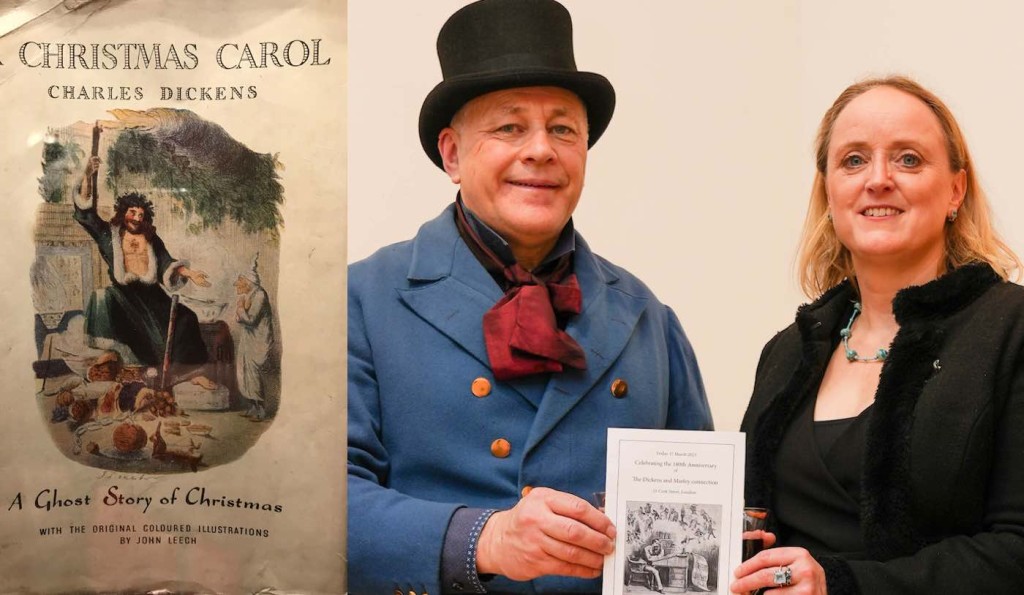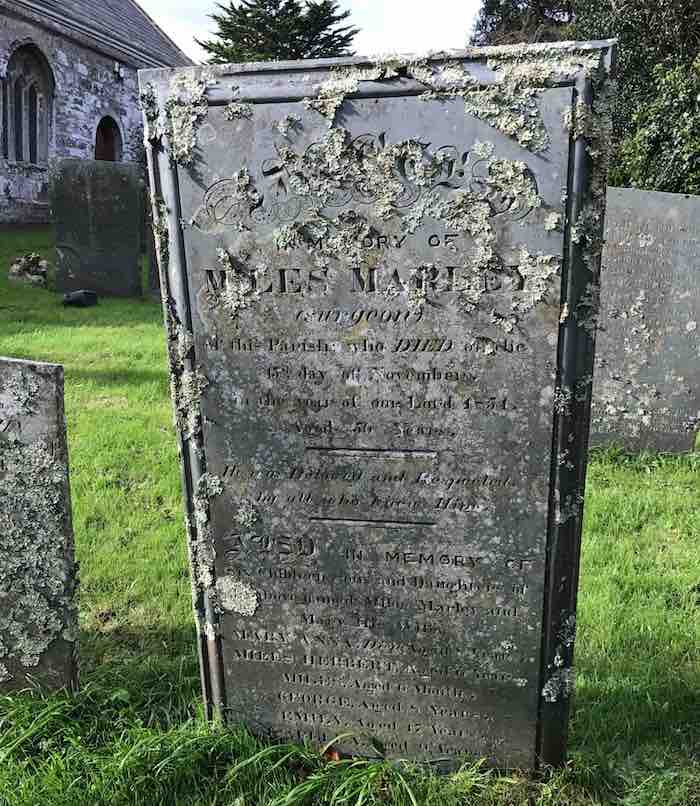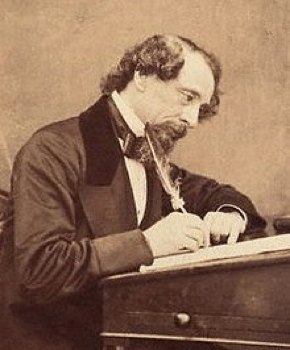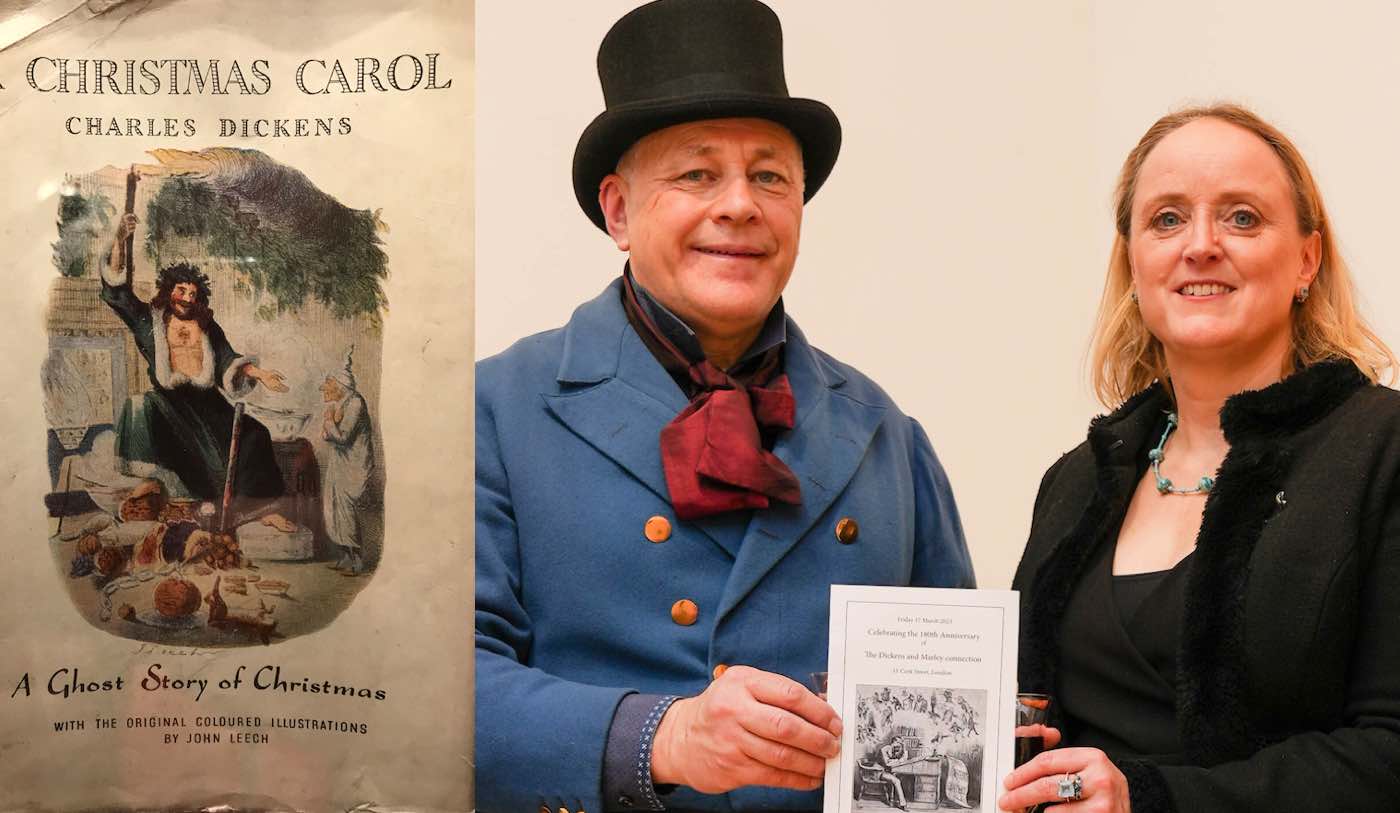
The family of Charles Dickens met the descendants of the real-life Jacob Marley Friday—180 years to the day that the author decided to immortalize him in ‘A Christmas Carol’.
Mark Dickens and Lucinda Hawksley from the Dickens family met Christopher Marley, a relative of the late Dr. Miles Marley.
Marley’s name was used by Dickens in 1843 when he developed the character of Jacob Marley, the regretful business partner of the miserly Ebenezer Scrooge.
Dr. Marley was an Irishman in London who held a St. Patrick’s Day party where Dickens was a guest.
During dinner the subject of strange surnames came up and Dr. Marley said he thought his name was a “most uncommon one”. Dickens reportedly declared: ”Your name shall be a household word before the year is out”.
‘Marley’, indeed, would soon become a name indelibly linked with the iconic holiday tale ‘A Christmas Carol’.
Dr. Marley died in Port Isaac in Cornwall, England, in 1854, but now decedents of the two families have met—including Dickens’ great, great, grandson Mark, and great, great, great, granddaughter Lucinda.

To enhance the ceremony, they even met at the same address where their two ancestors met—11 Cork Street in London, the real Marley’s former practice.
“My great, great grandfather was constantly on the lookout for interesting names to use for the important characters in his novels,” said Mark. “He took a long time to settle on the right ones, and because of this so many of them are household names today.
Jacob Marley, the late partner of Ebenezer Scrooge and the first ghost to visit him in A Christmas Carol is, of course, one.
“Reconnecting with the descendants of Dr. Miles Marley who was acquainted with Charles Dickens is a wonderful moment.”
Lucinda added, “He was a wonderful magpie of a writer, always collecting names and personality traits to use in his novels.
“That he was such a keen observer of human nature and the world, helped him to write relatable characters who remain relevant even today.
“Opportunities such as meeting the descendants of the original ‘Marley’ (in name, not in personality!) are a really lovely benefit of having a famous ancestor.”
LOOK: Rent Winnie the Pooh’s Tree House in the Original Hundred Acre Wood at This ‘Bearbnb’

Organizer, historian Barry West said, “This is an historically important moment. Dickens and Marley are reputed to have had their initial and important conversation 180 years ago today—in this very same place.
“The name Marley was immortalized through books, plays, theatre performances, and education. The families met to remember the wonderful gift Charles Dickens gave us and the world in what was to become the timeless story that is still as relevant today.
“Perhaps one day we will see a blue plaque to commemorate the location the conversation and the wonderful novella A Christmas Carol,” he added, referring to a national historical marker.
Paul Graham, Honorary Secretary of the Dickens Fellowship confirmed: ”On 25th March, 1938, a letter from Miss M.M. Lloyd appeared in The Daily Telegraph relating how her grandfather, Dr. Miles Marley, had met Dickens at a St. Patrick’s Day dinner he held at his office in Piccadilly on March 17th, 1843.
Miss Lloyd’s story was picked up and retold in the pages of The Dickensian, the journal of the Dickens Fellowship.
“It was unusual, but not unknown, for Dickens, who delighted in inventing names for his characters, to use the names of real people he had met in his fiction. Fagin in Oliver Twist was named after Bob Fagin, a fellow worker with the young Dickens in the infamous blacking workhouse where he labored whilst a child.
“The odious Bentley Drummle in Great Expectations was named after one of Dickens’s early publishers, Richard Bentley, with whom Dickens had quarreled.
CHECK OUT: ‘Lord of the Rings’ Film Cast Crowdfunded to Buy J.R.R. Tolkien’s Home And Dedicate it to Fans
“Major characters in the Carol, except for Marley, have names that Dickens invented for his purpose. Scrooge, Cratchit, and Fezziwig are names that would not be encountered in the streets of London.
“Marley stands alone as being unusual in belonging to a real person.”
SHARE the Historic Literary Meeting With Book-Lovers on Social Media…




















